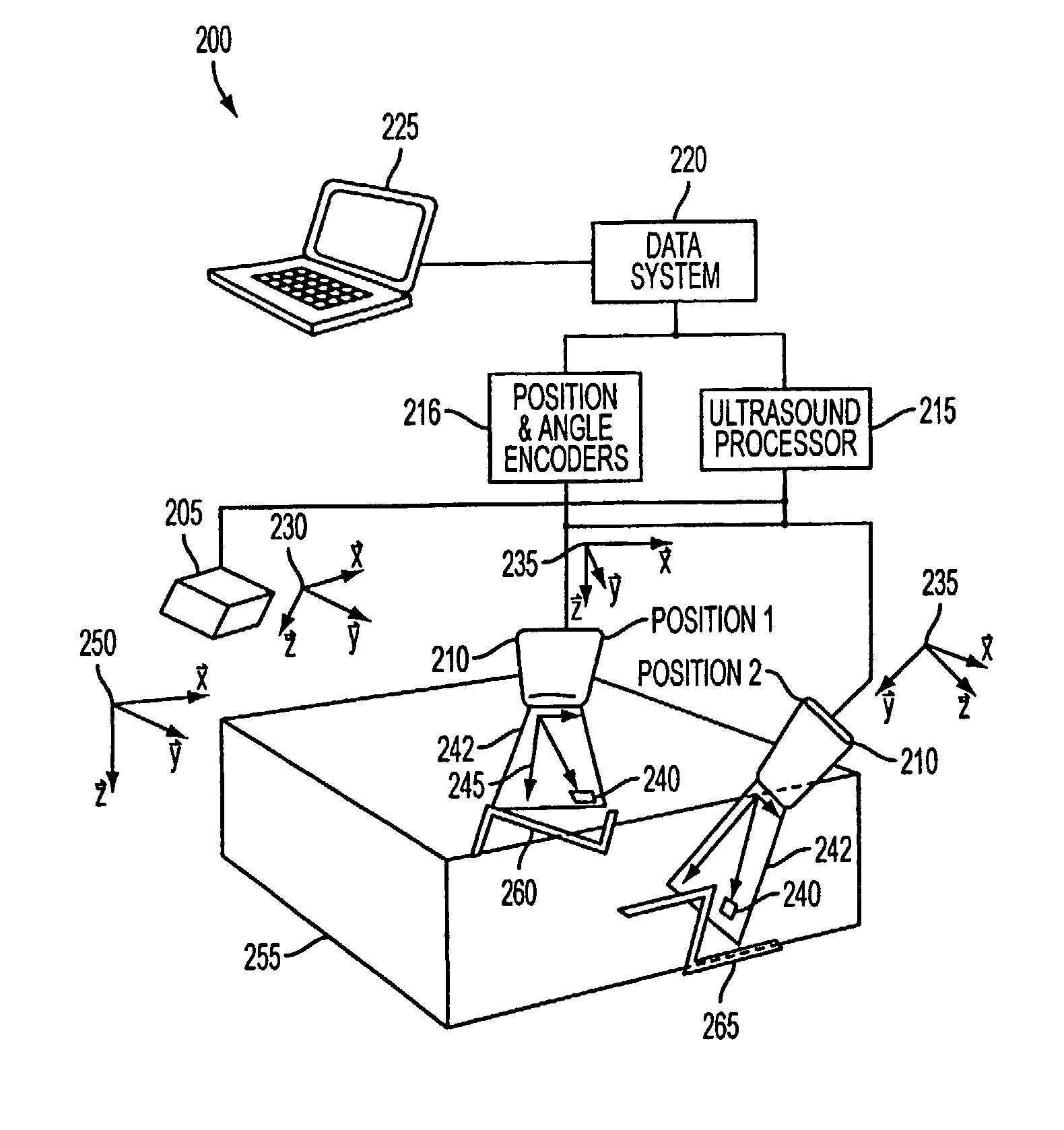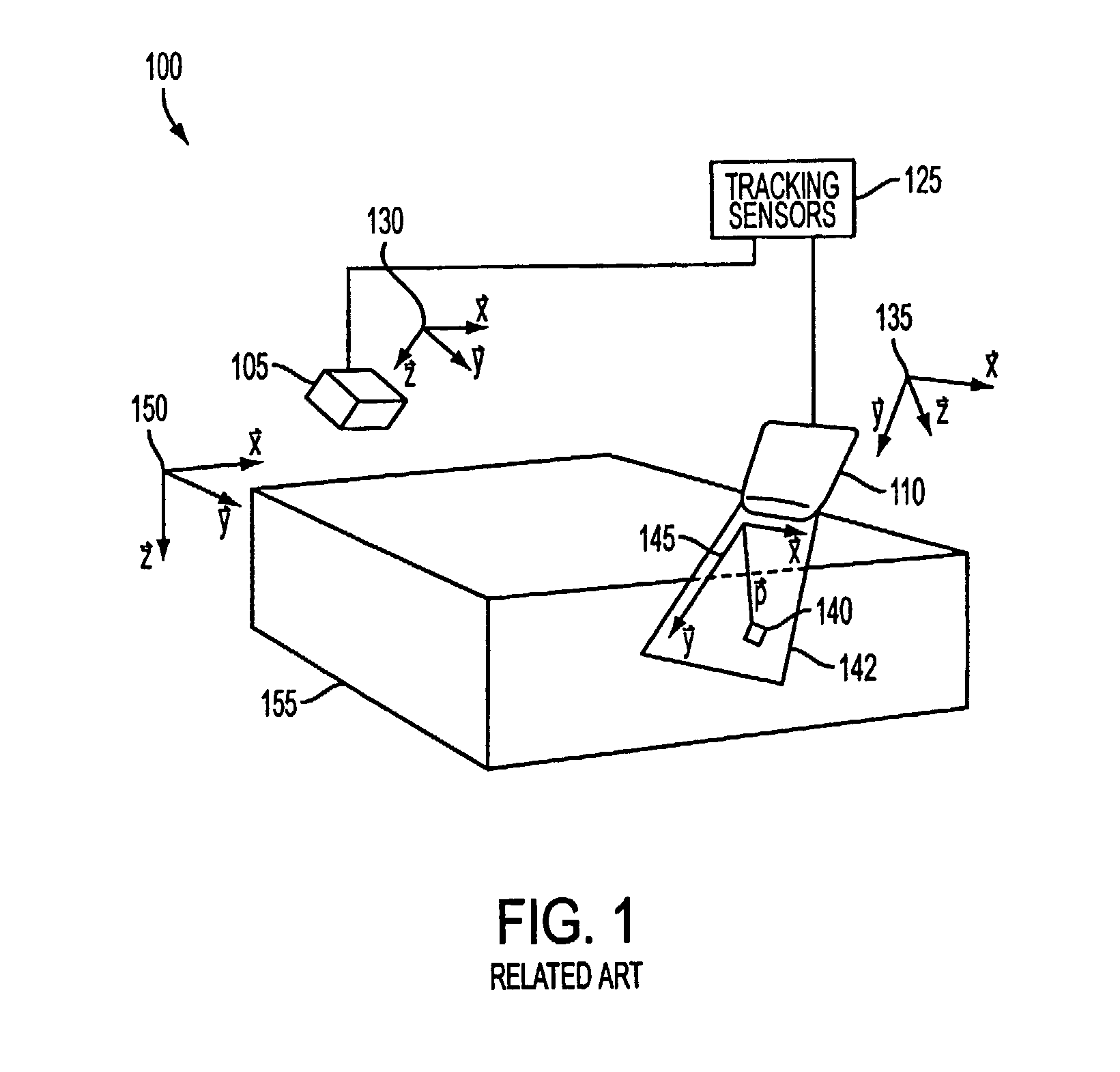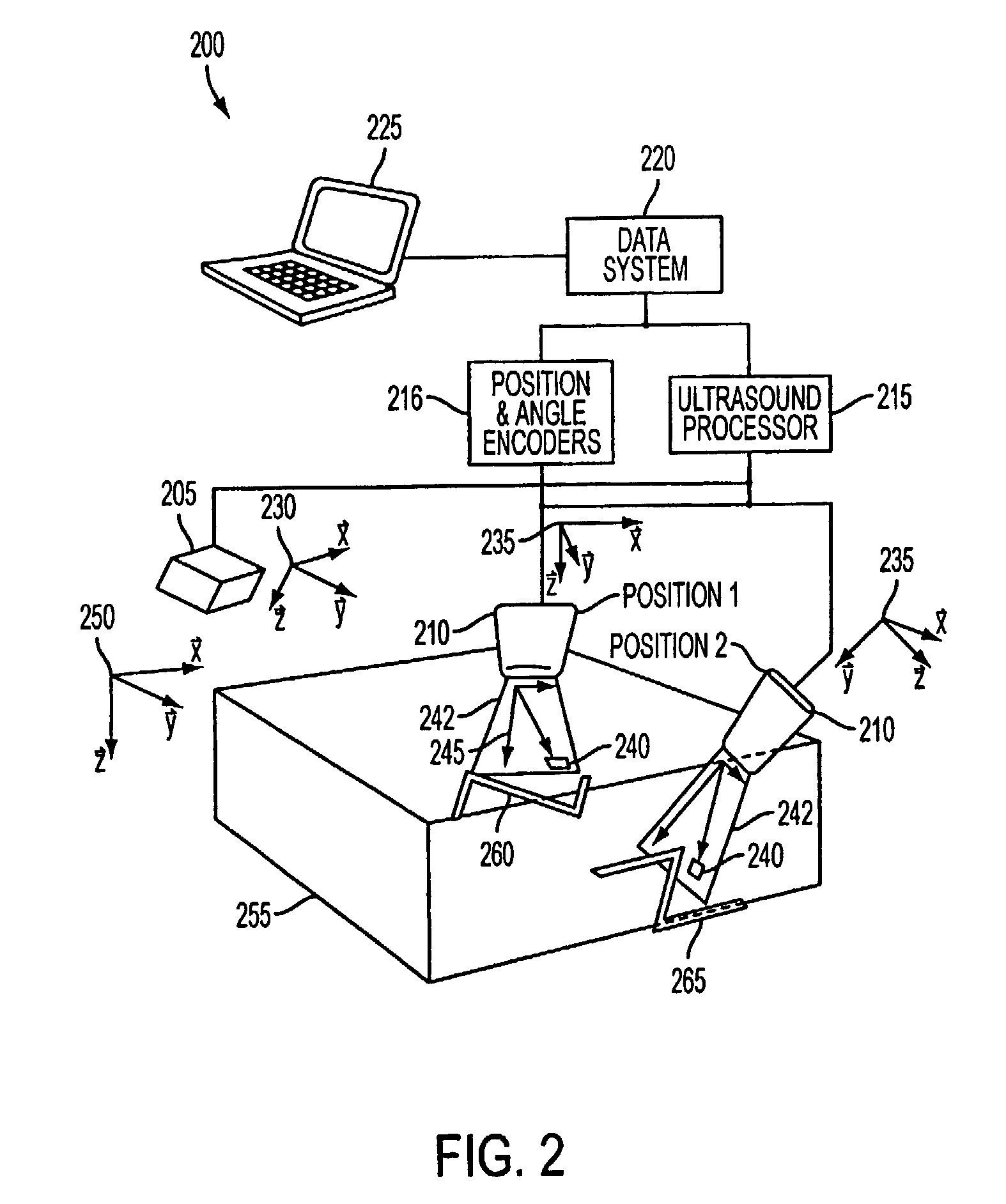Ultrasound calibration and real-time quality assurance based on closed form formulation
a closed form formulation and ultrasound probe technology, applied in ultrasonic/sonic/infrasonic diagnostics, instruments, applications, etc., can solve the problems of increasing the probability of errors that may render the probe calibration matrix invalid, increasing the processing time, and reducing the accuracy of the probe. , to achieve the effect of efficient and robust spatial calibration of the ultrasound probe, reducing the dependence on precision, and reducing post-calibration changes
- Summary
- Abstract
- Description
- Claims
- Application Information
AI Technical Summary
Benefits of technology
Problems solved by technology
Method used
Image
Examples
Embodiment Construction
[0036]FIG. 2 illustrates an exemplary ultrasound imaging system 200 according to the present invention. The imaging system 200 includes an ultrasound transmitter 205 having a transmitter reference frame 230; an ultrasound probe 210 having a probe reference frame 235; position and angle encoders 216 for measuring the position and orientation of the probe reference frame 235 relative to the transmitter reference frame 230; an ultrasound processor 215 for providing power and signals to, and receiving signals from, the ultrasound transmitter 205 and the ultrasound probe 210; a data system 220 for sending commands to and receiving data from the ultrasound processor 215 and the position and angle encoders 216; and a user interface 225 connected to the data system 220. The ultrasound probe 210 may transmit and receive energy in a scan plane 242, which includes a plurality of pixels 240 within the scan plane 242 and having a pixel reference frame 245.
[0037]The exemplary system 200 acquires ...
PUM
 Login to View More
Login to View More Abstract
Description
Claims
Application Information
 Login to View More
Login to View More - R&D
- Intellectual Property
- Life Sciences
- Materials
- Tech Scout
- Unparalleled Data Quality
- Higher Quality Content
- 60% Fewer Hallucinations
Browse by: Latest US Patents, China's latest patents, Technical Efficacy Thesaurus, Application Domain, Technology Topic, Popular Technical Reports.
© 2025 PatSnap. All rights reserved.Legal|Privacy policy|Modern Slavery Act Transparency Statement|Sitemap|About US| Contact US: help@patsnap.com



